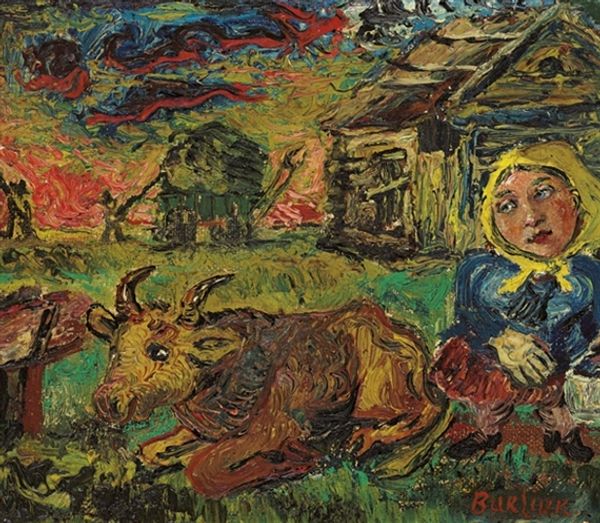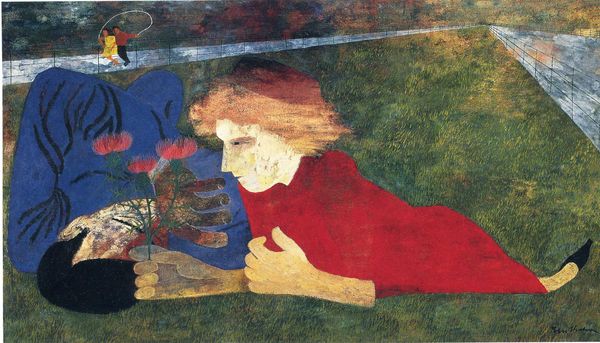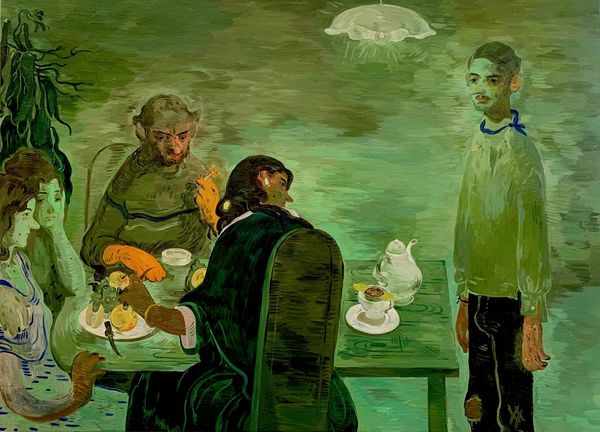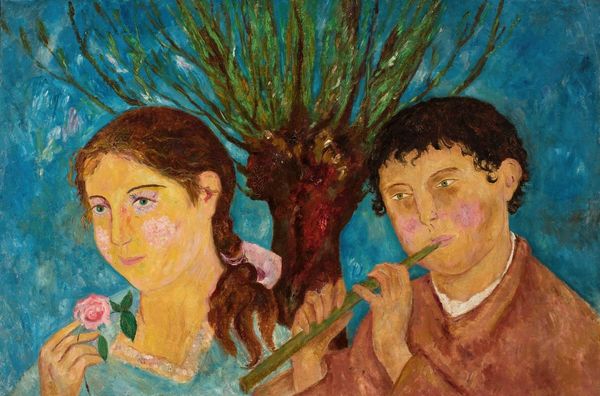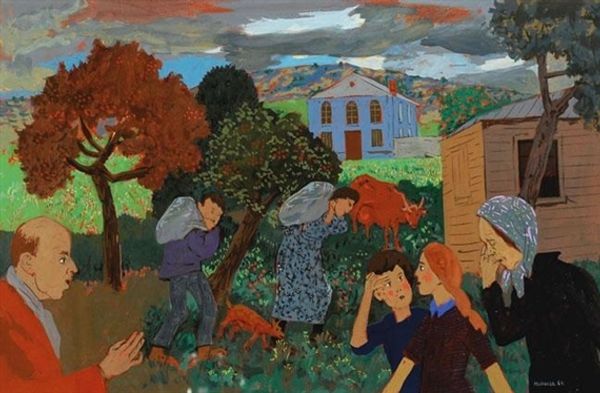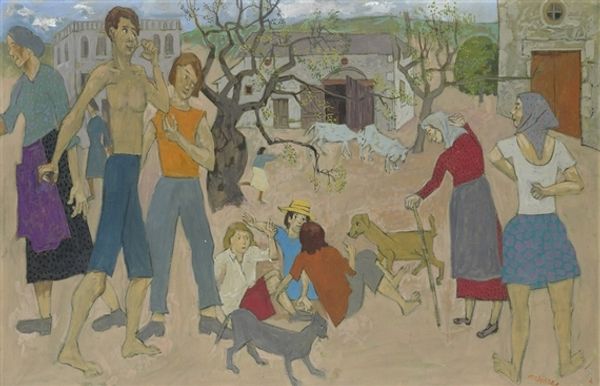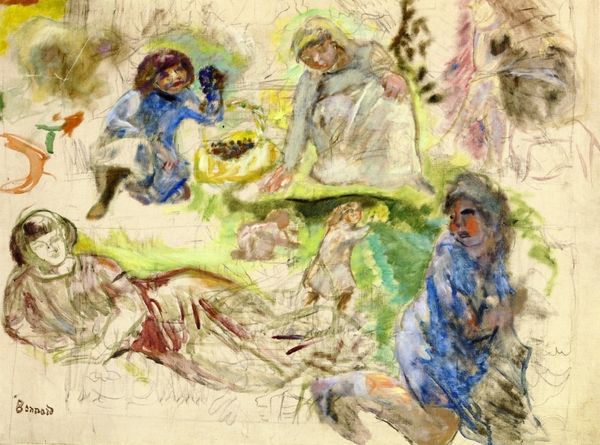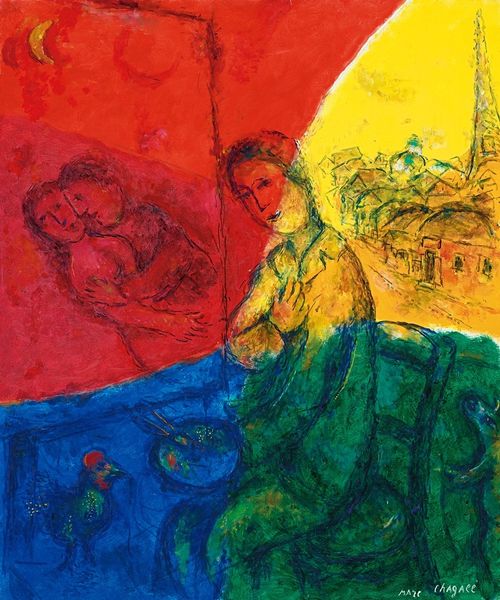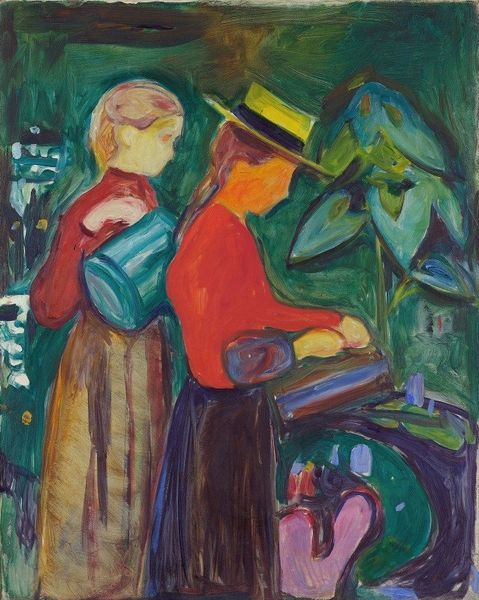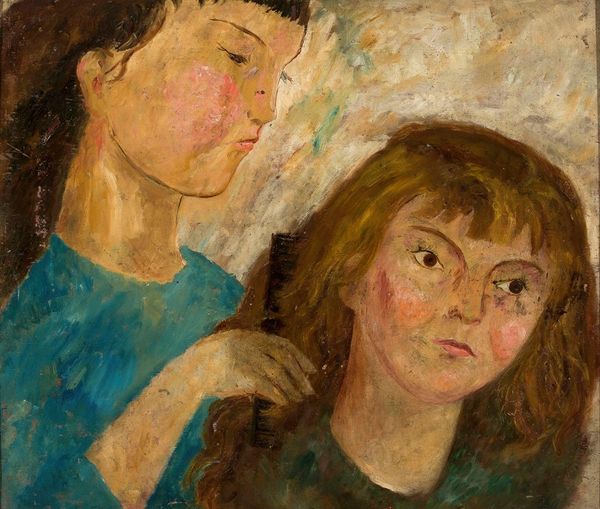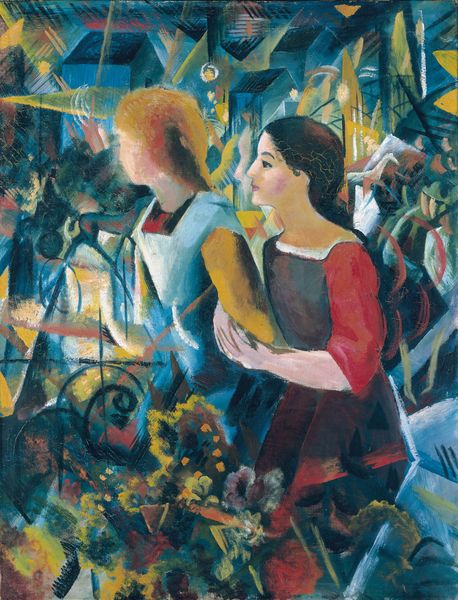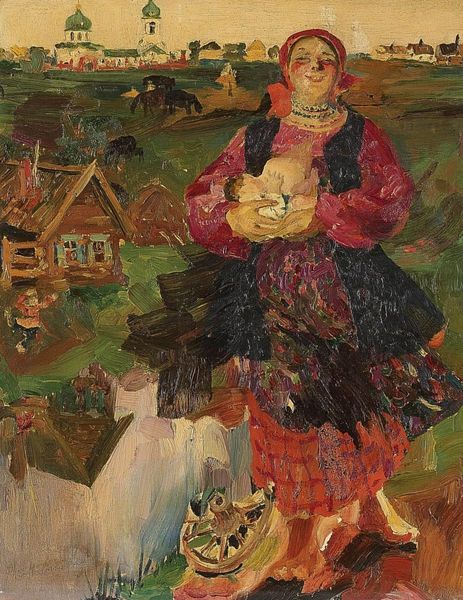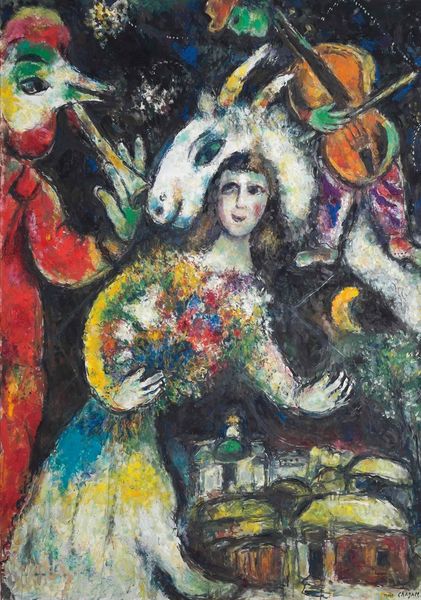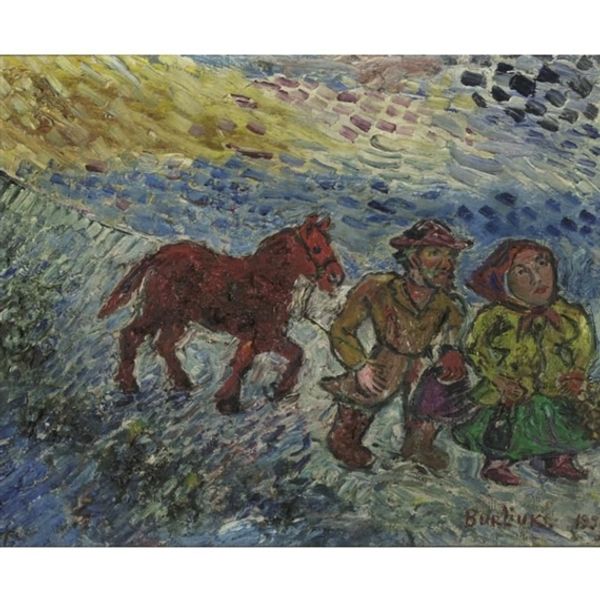
painting, oil-paint
#
portrait
#
animal
#
painting
#
oil-paint
#
landscape
#
figuration
#
handmade artwork painting
#
oil painting
#
folk-art
#
naive art
Copyright: David Burliuk,Fair Use
Curator: This engaging canvas, called "Black Horse" by David Burliuk, appears to be executed in oil paint. It has a rather naive style. What strikes you first? Editor: The roughness of the texture! The application of paint is so immediate and almost sculptural, particularly in the figures. It reminds me of folk art, or the directness of artists working outside the academic traditions. Curator: Exactly, Burliuk had a complex relationship to folk art. Notice the tools in the farmer’s hand. It underscores a connection to manual labor, grounding the figures in their working environment. It's a painting made of the earth. Editor: And the horse! Across cultures, horses often represent power, freedom, untamed nature... Here, it stands rather statically. I wonder if it also symbolizes a more quotidian form of labor in the fields. The figures’ hands, outstretched as they are, suggest an offering or exchange. Curator: An interesting point. I also observe the figures and see something quite primal. Consider how Burliuk lays the pigments in bold, almost unmixed, strokes. I wonder about access to materials in its time, or whether this points to an ideological rejection of academic blending techniques. Editor: That immediacy lends the whole scene a dreamlike quality. The woman, with her penetrating stare, feels almost like a figure from a myth or folktale, not quite rooted in the everyday, despite the farmer and his rake. She stands there watching you, across history and memory... Curator: A powerful observation! Her steady gaze certainly does create an intriguing emotional tension, doesn't it? This tension makes me rethink about this art production beyond a material act to become an experience. Editor: Right. Thinking about the painting like this encourages one to examine the symbolism—the cultural and emotional significance attached to what seem like simple materials—the figures’ relationship with nature. Thank you, this really added new perspectives. Curator: Agreed. Examining the scene in terms of material labor alongside these intriguing figures opens avenues into interpreting Burliuk's view of culture and artistic creation.
Comments
No comments
Be the first to comment and join the conversation on the ultimate creative platform.
